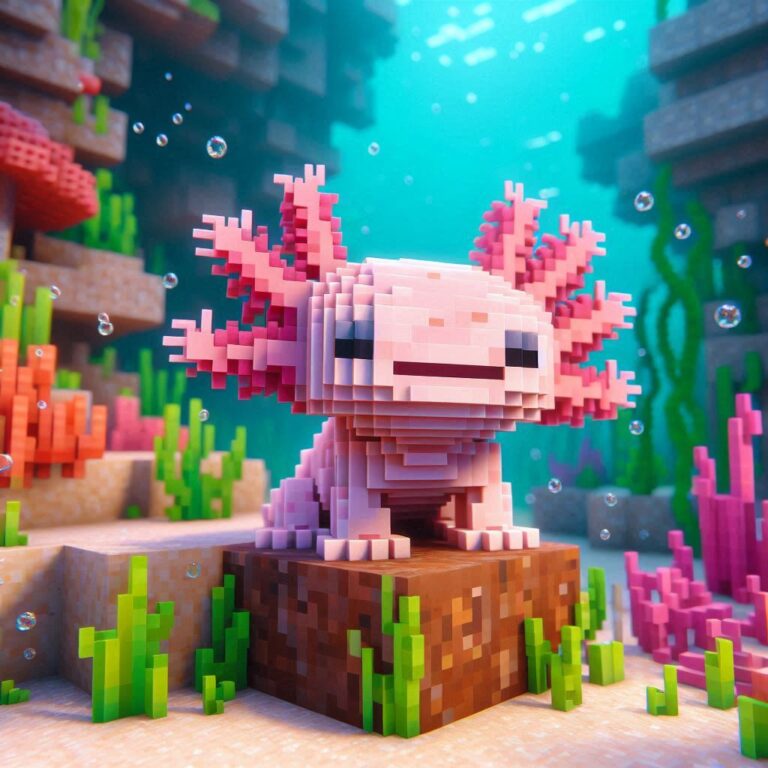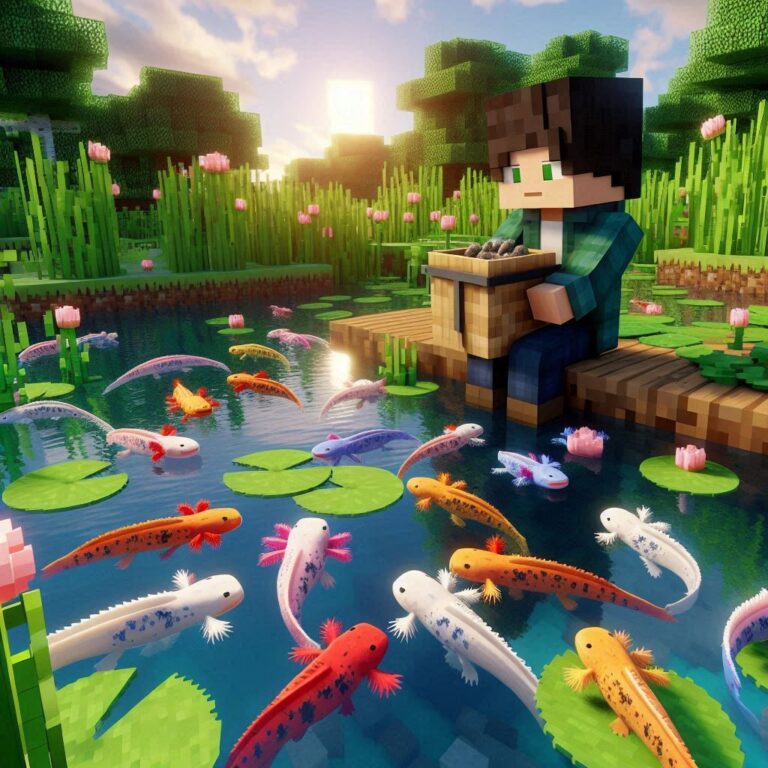
Axolotls should not be fed cat food. While it may seem convenient or even tempting to offer them cat food as an alternative source of nutrition, it can have detrimental effects on their health. Cat food lacks the essential nutrients and balance required for axolotl health and can lead to various issues such as digestive problems, nutritional deficiencies, and even toxicity. Instead, axolotls should be provided with a diet primarily consisting of live or frozen foods like bloodworms, brine shrimp, and earthworms, which offer the necessary nutrients to support their well-being. Feeding axolotls cat food should be avoided to ensure their long-term health and vitality.
What does cat food do to the axolotl
Cat food can have adverse effects on axolotls due to its composition and lack of suitability for their dietary needs. While cats have vastly different nutritional requirements than axolotls, cat food often contains high levels of protein and fat, which may seem beneficial at first glance. However, the specific balance of nutrients in cat food is not suitable for axolotls, leading to potential health complications. Axolotls require a diet rich in calcium and low in fat to support their unique physiology, which includes regenerative abilities and a delicate balance of water and electrolytes.
Feeding them cat food can disrupt this balance, leading to issues such as obesity, organ damage, and metabolic imbalances. Furthermore, cat food may contain additives, preservatives, and fillers that can be harmful to axolotls over time. Overall, while cat food may seem like a convenient option, it is essential to recognize its unsuitability for axolotls’ dietary needs to ensure their health and well-being.
Impact on Axolotl Health
Feeding axolotls cat food can have significant implications for their health and overall well-being. Axolotls are highly sensitive creatures with specific dietary requirements to thrive in captivity. Cat food lacks the essential nutrients, such as calcium and vitamin D3, necessary for axolotl bone health and growth. Without these nutrients, axolotls may develop skeletal deformities, weakened bones, and a higher susceptibility to diseases like metabolic bone disease. Additionally, the high protein and fat content in cat food can lead to obesity and liver problems in axolotls, as they are not equipped to process and metabolize such high levels of these nutrients.
Furthermore, feeding axolotls cat food may also result in digestive issues such as constipation, bloating, and gastrointestinal distress, leading to discomfort and potential long-term health complications. Overall, the impact of feeding cat food to axolotls extends beyond immediate health concerns and can have lasting consequences on their overall health and quality of life.
Digestive Concerns
Feeding axolotls cat food can pose significant digestive concerns due to its inappropriate composition and lack of suitability for their digestive systems. Axolotls are carnivorous amphibians with specialized digestive tracts adapted to process live prey such as insects, small fish, and crustaceans. Cat food, on the other hand, is formulated for the digestive systems of cats, which have vastly different dietary requirements and digestive capabilities.
The high levels of protein and fat in cat food can overwhelm the digestive systems of axolotls, leading to issues such as indigestion, bloating, and constipation. Additionally, cat food may contain fillers, additives, and preservatives that axolotls are not equipped to digest properly, further exacerbating digestive distress. Over time, feeding axolotls cat food can disrupt their digestive health and lead to chronic issues that affect their overall well-being and quality of life. Therefore, it is crucial to provide axolotls with a diet that is tailored to their unique digestive physiology to ensure optimal health and longevity.
Long-term Effects on Axolotls
Feeding axolotls cat food can have detrimental long-term effects on their health and overall well-being. While it may seem convenient to offer cat food as a quick and easy source of nutrition, the consequences of doing so can be severe and far-reaching. One of the most significant long-term effects is the potential for nutritional deficiencies, as cat food does not provide the essential nutrients that axolotls need to thrive. Without adequate levels of calcium, vitamin D3, and other vital nutrients, axolotls may develop skeletal deformities, weakened immune systems, and a higher susceptibility to diseases. Additionally, the high protein and fat content in cat food can lead to obesity, liver problems, and metabolic imbalances in axolotls over time.
Furthermore, feeding axolotls cat food may also disrupt their natural behaviors and instincts, as they become accustomed to an unnatural diet that does not fulfill their nutritional needs. Overall, the long-term effects of feeding cat food to axolotls extend beyond physical health concerns and can impact their overall quality of life and ability to thrive in captivity. Therefore, it is essential to provide axolotls with a balanced and species-appropriate diet to ensure their long-term health and well-being.
Nutritional Value of Cat Food for the Axolotl
Understanding the nutritional value of cat food for axolotls is crucial for their health and well-being. Cat food typically contains a blend of protein, fat, carbohydrates, vitamins, and minerals designed to meet the dietary needs of domestic cats. However, while some components of cat food may seem beneficial, such as the protein content, it is essential to recognize that axolotls have vastly different nutritional requirements than cats. Therefore, while cat food may provide certain nutrients, it lacks the specific balance and composition necessary to support axolotl health. Furthermore, cat food may contain additives, preservatives, and fillers that axolotls cannot metabolize efficiently, potentially leading to digestive issues and long-term health complications. Overall, while cat food may seem like a convenient option, it is essential to consider its suitability for axolotls’ dietary needs to ensure their health and well-being.
Protein Content
Protein is a crucial component of axolotl nutrition, supporting growth, tissue repair, and overall health. Cat food typically contains a high protein content, which may seem beneficial for axolotls at first glance. However, while protein is essential for axolotls, the source and quality of protein in cat food may not be suitable for their dietary needs. Axolotls require high-quality, easily digestible sources of protein, such as insects, small fish, and crustaceans.
Cat food, on the other hand, often contains protein derived from animal by-products, grains, and fillers, which may be less digestible and provide incomplete amino acid profiles for axolotls. Additionally, feeding axolotls cat food with excessive protein levels can strain their kidneys and liver, leading to long-term health issues such as kidney damage and metabolic imbalances. Therefore, while protein is essential for axolotls, it is crucial to provide them with a balanced diet that meets their specific protein needs while considering the quality and source of protein to ensure their health and well-being.
Fat Content
Fat is another component of cat food that requires consideration when feeding axolotls. While fat is an essential source of energy and supports various bodily functions, excessive fat intake can lead to health issues for axolotls. Cat food often contains moderate to high levels of fat, which may exceed the fat requirements of axolotls and lead to obesity, liver problems, and metabolic imbalances over time. Additionally, the type of fat present in cat food, such as saturated fats and omega-6 fatty acids, may not be ideal for axolotls’ dietary needs. Axolotls require a balanced ratio of omega-3 to omega-6 fatty acids to support their immune system, inflammation response, and overall health. Therefore, while fat is necessary for axolotls, it is essential to provide them with a diet that contains appropriate levels and types of fat to ensure their health and well-being.
Vitamin and Mineral Composition
Vitamins and minerals play critical roles in axolotl health, supporting various physiological functions, growth, and overall well-being. While cat food may contain added vitamins and minerals to meet the dietary needs of domestic cats, it is essential to recognize that axolotls have different requirements. Axolotls require specific vitamins and minerals, such as calcium, vitamin D3, and phosphorus, to support their unique physiology, including bone health, metabolic processes, and immune function.
However, cat food may not provide adequate levels or proper ratios of these nutrients for axolotls, leading to deficiencies and health issues over time. Additionally, the presence of additives, preservatives, and fillers in cat food may further affect the absorption and utilization of vitamins and minerals by axolotls, potentially exacerbating nutritional deficiencies. Therefore, while vitamins and minerals are essential for axolotl health, it is crucial to provide them with a balanced diet that meets their specific requirements to ensure their health and well-being.
Is cat food poisonous for the axolotl?
Cat food itself may not be inherently poisonous to axolotls, but it can pose significant risks to their health due to its composition and unsuitability for their dietary needs. While cats and axolotls are both carnivorous, their nutritional requirements differ significantly. Cat food often contains ingredients and additives that may be harmful or even toxic to axolotls, leading to digestive issues, nutrient deficiencies, and long-term health complications. Additionally, feeding axolotls cat food regularly can disrupt their natural dietary behaviors and lead to behavioral issues and metabolic imbalances. Therefore, while cat food may not be poisonous in the traditional sense, it can have detrimental effects on axolotl health and well-being if fed regularly or in large quantities.
Harmful Ingredients in Cat Food
Cat food may contain various harmful ingredients that can pose risks to axolotls’ health and well-being. Some common additives and preservatives found in cat food, such as artificial colors, flavors, and chemical stabilizers, may be toxic to axolotls and can cause digestive issues, allergic reactions, and long-term health complications. Additionally, cat food may contain by-products, fillers, and low-quality ingredients that offer little nutritional value and may even be harmful to axolotls over time. Certain ingredients, such as garlic, onions, and high levels of sodium, can be particularly toxic to axolotls and should be avoided altogether. Therefore, it is essential to carefully read the ingredients list on cat food labels and avoid feeding axolotls any products containing potentially harmful ingredients to ensure their health and well-being.
Toxicity Risks
Feeding axolotls cat food can pose significant toxicity risks due to the presence of harmful ingredients and additives. Certain additives and preservatives commonly found in cat food, such as BHA, BHT, and ethoxyquin, have been linked to adverse health effects in animals and may be toxic to axolotls if ingested regularly or in large quantities. Additionally, cat food may contain by-products, fillers, and low-quality ingredients that can be harmful to axolotls’ health and may even contain traces of pesticides, heavy metals, and other contaminants. Therefore, feeding axolotls cat food without proper consideration of its ingredients and potential toxicity risks can lead to serious health complications and even death in severe cases. It is essential to research and choose high-quality, species-appropriate foods for axolotls to minimize their exposure to potential toxins and ensure their health and well-being.
Allergic Reactions in Axolotls
Axolotls can experience allergic reactions to certain ingredients and additives commonly found in cat food. While axolotls may not exhibit typical allergic responses like humans or mammals, they can still suffer from adverse reactions such as skin irritation, inflammation, and gastrointestinal distress when exposed to allergens in their diet. Common allergens found in cat food, such as grains, gluten, and artificial additives, can trigger allergic reactions in axolotls and lead to discomfort and health issues if ingested regularly. Additionally, certain proteins derived from animal by-products or low-quality sources may also cause allergic reactions in sensitive axolotls. Therefore, it is essential to monitor axolotls closely for any signs of allergic reactions when introducing new foods into their diet and to avoid feeding them cat food containing potential allergens to ensure their health and well-being.
What to do if you feed cat food to your axolotl

If you have mistakenly fed cat food to your axolotl, it’s crucial to take immediate action to minimize potential harm and address any resulting health concerns. While cat food is not suitable for axolotls and may cause digestive issues or other health complications, there are steps you can take to mitigate the situation and ensure your axolotl’s well-being.
Immediate Steps After Feeding
The first step after realizing your axolotl has been fed cat food is to remove any remaining food from their tank immediately. This helps prevent further ingestion of inappropriate food and reduces the risk of digestive upset. Next, perform a partial water change to help dilute any toxins or contaminants that may have been introduced into the tank water. Ensure the water parameters, such as temperature and pH, are within the appropriate range for axolotls to minimize stress on your pet.
Monitoring Axolotl Behavior
After removing the cat food and performing a water change, closely monitor your axolotl’s behavior and appearance for any signs of distress or illness. Look for symptoms such as lethargy, loss of appetite, abnormal swimming patterns, or changes in skin coloration. If you notice any concerning signs, it’s essential to take prompt action to address any potential health issues. Additionally, observe your axolotl’s bowel movements for any abnormalities, as digestive upset may manifest in changes in stool consistency or frequency.
Consulting a Vet
If your axolotl exhibits any concerning symptoms after being fed cat food, it’s crucial to seek veterinary advice as soon as possible. A qualified exotic animal veterinarian will be able to assess your axolotl’s condition, provide appropriate treatment, and offer guidance on how to support their recovery. Be sure to inform the vet of the situation, including what type of cat food was fed and how much, as this information will help them make informed decisions about your axolotl’s care. In some cases, your vet may recommend additional diagnostics or treatments to address any potential health issues caused by the ingestion of cat food. Overall, consulting a vet is essential for ensuring the health and well-being of your axolotl after an accidental feeding of cat food.
FAQs
Q. Can axolotls eat dry cat food?
Answer: Axolotls should not be fed dry cat food as it lacks the proper nutrition and may cause digestive issues.
Q. What happens if an axolotl eats cat food?
Answer: Consumption of cat food can lead to nutritional deficiencies, digestive problems, and even toxicity in axolotls.
Q. Is wet cat food safe for axolotls?
Answer: While wet cat food may contain more moisture, it still lacks the necessary nutrients tailored for axolotl health.
Q. How often can axolotls eat cat food?
Answer: Axolotls should not be fed cat food at all. Their diet should primarily consist of live or frozen foods such as bloodworms, brine shrimp, and earthworms.
Q. Can axolotls eat fish flakes instead of cat food?
Answer: Fish flakes are not suitable as a staple diet for axolotls as they may lack essential nutrients and could lead to health issues over time.
Q. Are there any alternatives to cat food for axolotls?
Answer: Axolotls thrive on a diet of live or frozen foods like bloodworms, brine shrimp, and earthworms. These provide essential nutrients and mimic their natural diet.
Q. What should I do if my axolotl accidentally ingests cat food?
Answer: Monitor your axolotl closely for any signs of distress or illness. If symptoms arise, consult a veterinarian experienced with exotic pets immediately.
Q. Can axolotls eat other types of pet food?
Answer: Axolotls should not be fed other types of pet food meant for dogs or cats. These foods are not formulated to meet the nutritional needs of axolotls.
Q. What are the signs of cat food poisoning in axolotls?
Answer: Signs of cat food poisoning in axolotls may include lethargy, loss of appetite, abnormal swimming behavior, and discoloration of the skin or gills.
Q. How can I ensure my axolotl receives proper nutrition?
Answer: Offer a varied diet of live or frozen foods rich in protein, vitamins, and minerals. Additionally, consider supplementing their diet with calcium and vitamin D3 to support their bone health.
Conclusion
In conclusion, while the idea of feeding cat food to axolotls may seem convenient, it’s clear that it poses significant risks to their health and well-being. Cat food lacks the essential nutrients and balance necessary to support axolotl physiology, and its consumption can lead to a range of issues, including digestive upset, nutritional deficiencies, and potential toxicity. Therefore, it’s crucial for axolotl owners to understand the importance of providing a species-appropriate diet tailored to their unique dietary needs. By offering a variety of live or frozen foods rich in protein, vitamins, and minerals, axolotls can thrive and maintain optimal health.

Hassan Shah carries over four years of hands-on expertise in caring for axolotls, guided by his cherished companion ‘Little Bruno,’ a thriving axolotl under his attentive care for three years.



